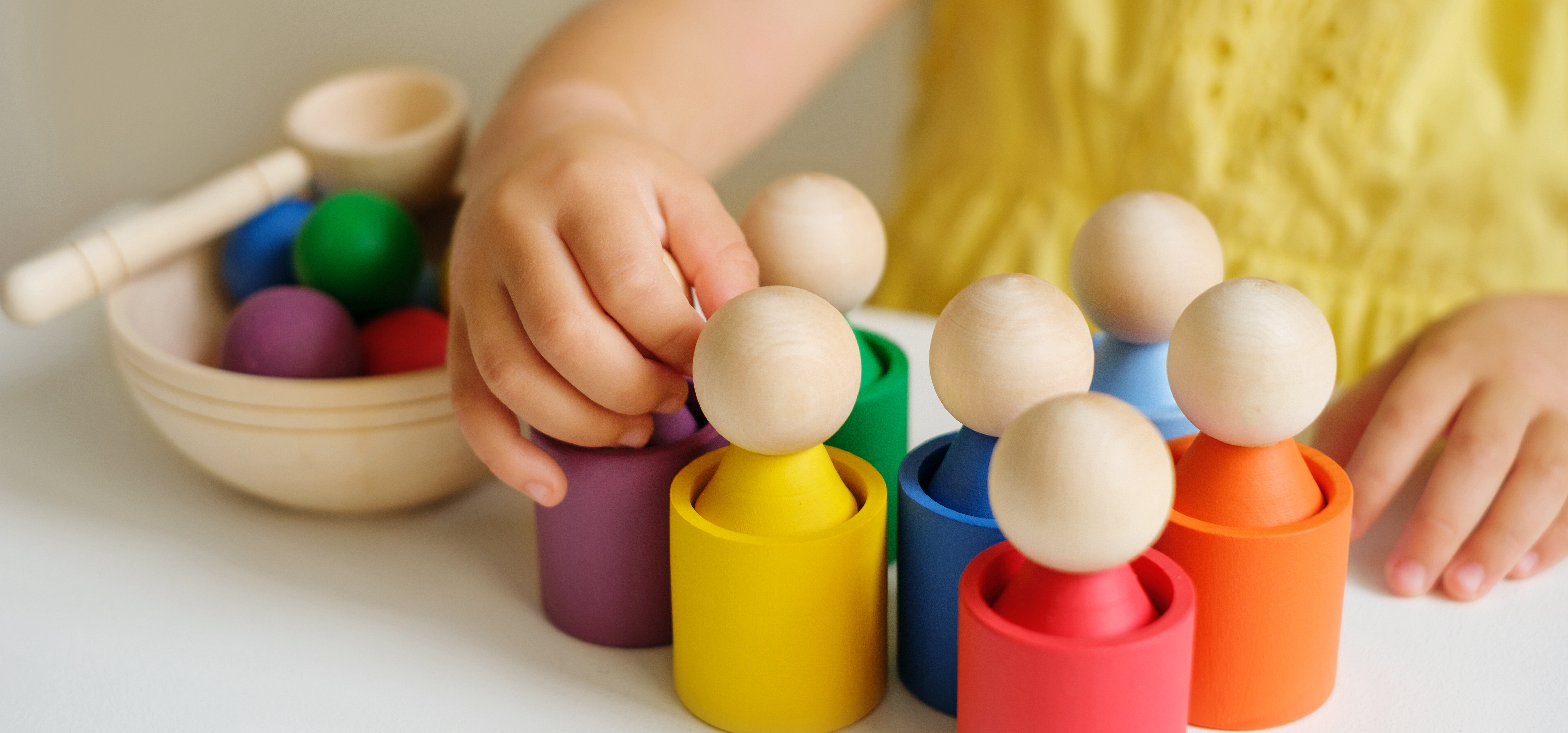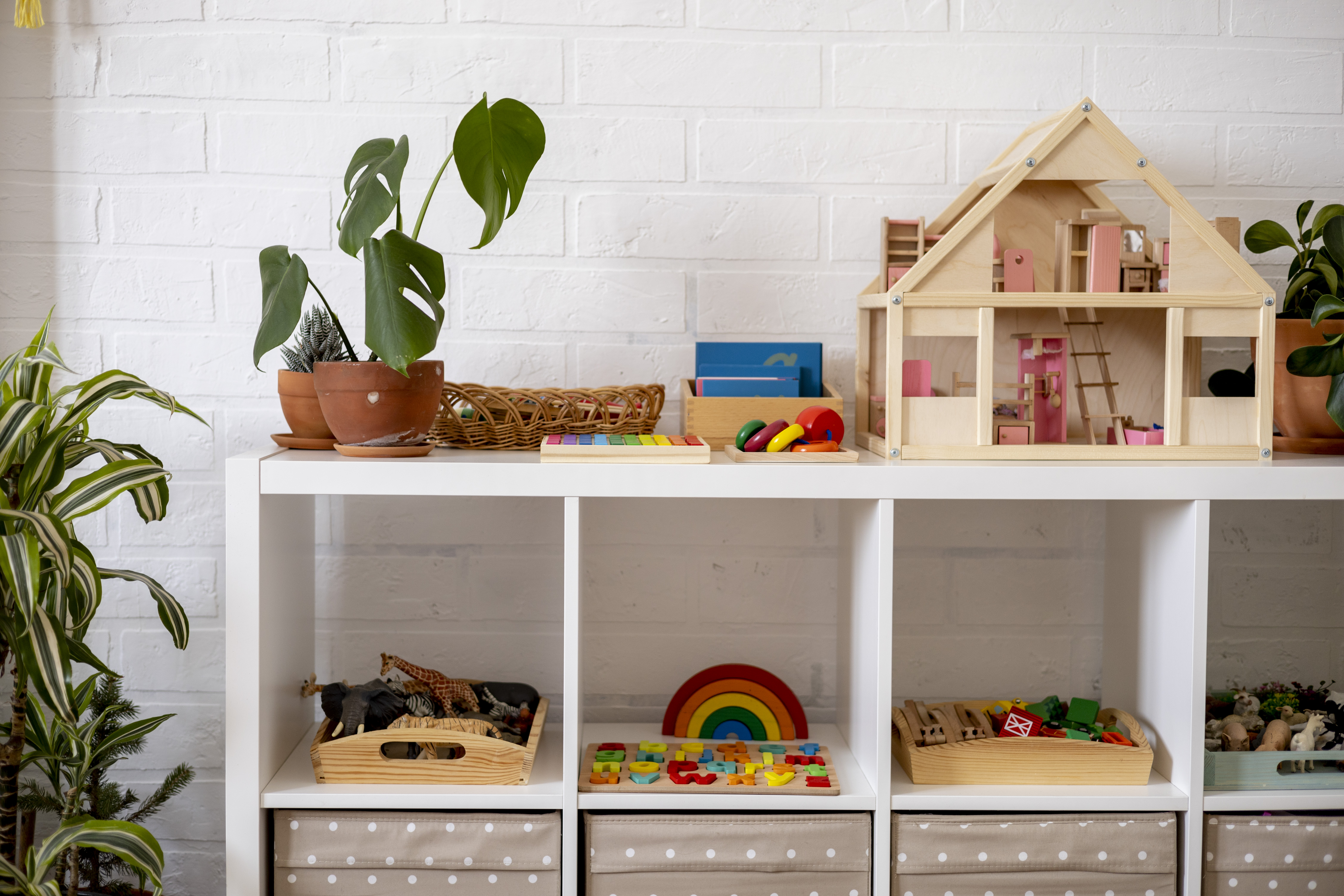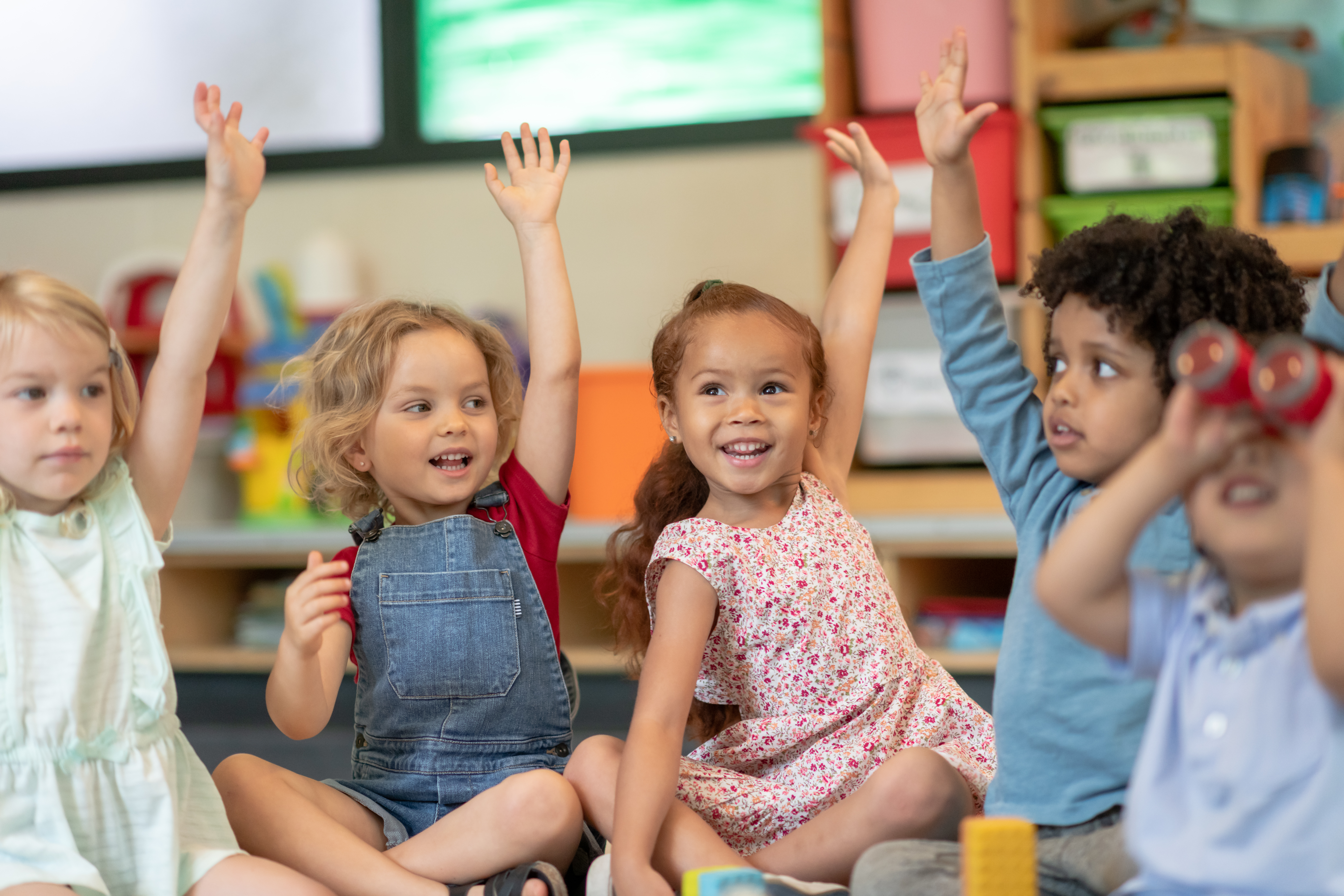What is Montessori?
A Method Rooted in Respect, Designed for Discovery
At Maya Montessori, we honor the authentic Montessori philosophy—an approach that nurtures every child’s natural curiosity, independence, and love of learning. In a carefully prepared environment, children are empowered to grow at their own pace, guided by gentle encouragement and purposeful materials.

What is Montessori?
Montessori is an educational philosophy and method developed by Dr. Maria Montessori in the early 1900s. Grounded in her observations of how children naturally learn, the Montessori method emphasizes a holistic, child-led approach to education.
In a Montessori classroom, learning is not dictated by a rigid curriculum or strict timelines. Instead, children are given the freedom to choose activities that match their interests and developmental stage—encouraging focus, confidence, and a love of learning.
Montessori environments feature hands-on materials that invite movement, manipulation, and exploration. These tools are intentionally designed to make abstract concepts concrete—whether it's counting beads for math or pouring water to practice fine motor control. The classroom itself is a peaceful, orderly space where every item has purpose, and where every child is seen, respected, and supported in their unique path of development.
How Montessori is Different
- Child-Centered Learning: Children direct their own learning journey by selecting activities that spark their curiosity and align with their developmental needs.
- Prepared for Independence: Classrooms are filled with child-sized furniture, tools, and responsibilities—allowing children to care for themselves and their environment.
- Hands-On Exploration: Montessori materials are tactile, precise, and purpose-driven—designed to engage the senses and make learning tangible.
- Mixed-Age Classrooms: Children learn from each other in a family-like setting. Younger students are inspired by older peers, while older ones reinforce their knowledge by teaching and modeling.
- The Teacher as Guide: Educators carefully observe each child and offer support only when needed. They do not lecture, but rather facilitate discovery and self-mastery.
- Holistic Focus: Montessori nurtures more than academics—it promotes emotional awareness, social collaboration, and physical coordination.

The Six Key Areas of Montessori Learning
Practical Life
Building independence through everyday tasks.
Sensorial
Refining perception through sensory exploration.
Math
Experiencing quantity and logic through tactile tools.
Language & Literacy
Strengthening communication and comprehension.
Science & Culture
Exploring the natural world and diverse traditions.
Creative Expression
Encouraging joy and confidence through art and music.
Why It Works
Montessori education works because it aligns with how children naturally learn—not through memorization, but through exploration, movement, and meaning.
By empowering children to make choices, Montessori builds intrinsic motivation and discipline. Children develop a deep sense of self-confidence because they are trusted to lead their own learning. The calm, respectful atmosphere of the classroom allows for concentration and reflection—rare traits in today’s fast-paced world.
Decades of research support what Montessorians have long observed: Montessori students show strong academic outcomes, improved executive functioning, better social-emotional skills, and higher levels of curiosity and empathy. They don’t just perform well in school—they flourish as capable, compassionate learners for life.
